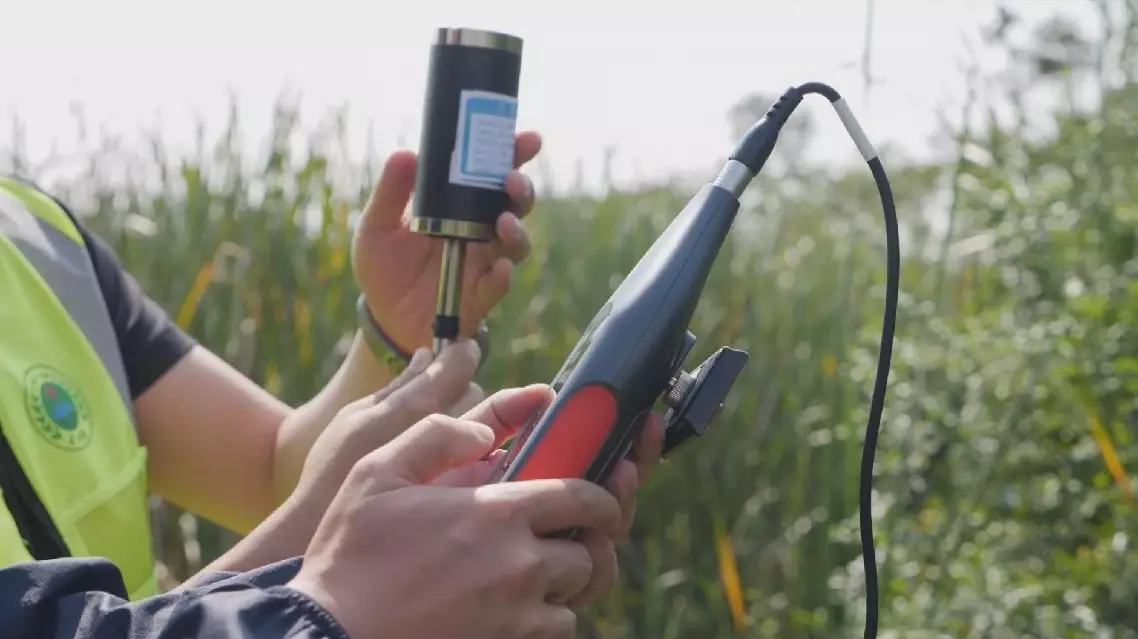Mahya Mirsadeghi, a vlogger from Iran currently studying in Beijing, is recording her traveling experience in China through videos and telling her stories to subscribers on social media platforms, with a hope to show a real China to the world.
While studying and traveling in the country, Mirsadeghi was impressed by the safety, which encouraged her to travel more with her sister and friends.
"What I love the most about China is how safe it is for solo travelers, especially girls. My sister and I, we are two young girls traveling all over China. We never felt unsafe, to be honest," she said.
In the vast country, Xi'an, the historic city in northwest China, is her favorite destination because she shares the same culture with the local Muslim community.
"The reason behind that is that I'm a Muslim, and Xi'an has a large population of Muslims. They are called 'Hui zu.' I shared many video content on different social media platforms such as Instagram, TickTok and YouTube telling my Muslim followers that Xi'an is amazing for you," she said.
The Iranian lady is also impressed by the inclusiveness and friendliness of the Chinese people.
"I enjoyed my time talking and hanging out with people and feeling the love and respect that they have towards foreigners. It's just amazing. I'm so grateful for that," said Mirsadeghi.
Mirsadeghi experienced the lifestyle of Chinese cities, and was surprised by the convenience of high-speed trains, shared bicycles, phone apps, and mobile payments.
"China is living in the future, because everything is done so fast and so convenient," she said.
She said her goal is to share her real-life experience with the world in response to rumors about China and to inspire more people like her to live and study in the country.
My goal is to show the true side of China to the world, because unfortunately, there are so many false propagandas, about China going around – about the food, about the culture, about hygiene, which is absolutely not true. So my goal is to show the other side of China to the world. And I was quite successful as I encourage and inspire, many Iranians and foreigners to come and study in China," said Mirsadeghi.

Iranian vlogger shares her real-life experience in China
The China National Environmental Monitoring Center (CNEMC) has launched the establishment of a database of natural sounds within urban areas this year, aiming to help manage urban noise pollution by more accurately identifying and differentiating natural sounds from artificial noises.
China plans to build a unified national network for automatically monitoring acoustic environmental quality starting on January 1, 2025. The system will focus on monitoring urban man-made noises, but at the same time, it will also unavoidably include natural sounds from birds and insects, as well as the rustling of wind and rain. These natural sounds could affect the accuracy of noise assessments, so it is necessary to collect them in a database so as to better identify and classify different types of noise. By the Dianchi Lake in Kunming, southwest China's Yunnan Province, local environmental monitoring professionals used specific equipment to capture various sounds within a wetland park. They collected sounds from birds, insects, and frogs, along with natural noises like rain, thunder, and wind. These sounds could potentially influence the monitoring results of urban acoustic environmental quality.
They recorded sounds for at least two hours at each monitoring location. They then used specialized software to analyze these recordings, selecting the clearer and less disrupted natural sounds to upload them into the database.
"The natural sounds in this recording are relatively clear and distinct, and the background noise is relatively low, so it is valid. But look at the waveform of this recording, the bird or insect sounds are unclear, and the environmental noise is relatively loud. Based on these two criteria, this recording is invalid," said He Fanyu, an engineer at the Yunnan Ecological and Environment Monitoring Center.
Since the first quarter of this year, the CNEMC has organized local environmental monitoring stations to record natural sounds in urban areas of over 80 cities. As of now, more than 420,000 raw recordings have been made, with 80,000 of them being valid. By the end of the year, it is expected that 600,000 valid recordings will have been collected nationwide for the development of China's largest noise database.
"After the database is built, our next step is to train and test an intelligent sound recognition model. It will help us not only to check if noise levels exceed allowed limits but also to identify where the excess noise is coming from. For example, construction noise is temporary and highly variable, so it requires specific management, especially during nighttime," said Wang Yun, a senior engineer at the Physics Department of the CNEMC.

China developing natural sound database to better tackle urban noise pollution










